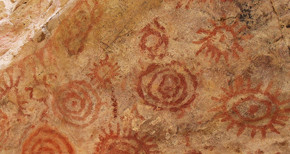Call for Editor: Advances in Archaeological Practice
Applications for editor are due by September 30, 2024.

Application materials are due electronically no later than September 30, 2024.
The Society for American Archaeology (SAA) invites applications for the editorship of its peer-reviewed journal Advances in Archaeological Practice. The editor’s term is for three years and may be renewed for an additional 2–3 years with the approval of the Publications Committee and SAA Board. Editor-designate will be appointed by January 1, 2025, for a term ending in April 2028, with a transitional period from the time of appointment working with the current editors, Sarah Herr, Christina Rieth, and Sjoerd van der Linde. The editor’s role can be filled by one or multiple people. Applications for editor are due by September 30, 2024.
Now in its twelfth volume, Advances in Archaeological Practice (AAP) is a quarterly, full-color, digital journal devoted to sharing creative solutions to challenges in the practice of archaeology, particularly as it relates to day-to-day work of archaeologists working globally in academia, museums, government, and private practice. It seeks to provide pragmatic, focused, and teachable articles about the ways archaeologists work with people and institutions, incorporate a wide array of technologies, balance the legal and ethical challenges of practice, and care about the past as they make archaeological work relevant to modern communities. Such ideas are communicated through research articles, how-to articles, and digital reviews. As of 2025, AAP will be the first fully open access (OA) journal published by the SAA. For more information about the journal leadership, structure, and contents, please visit https://www.cambridge.org/core/journals/advances-in-archaeological-practice.
AAP, with Latin American Antiquity and American Antiquity, is one of the journals offered to SAA members and institutional subscribers. In 2017, the SAA entered into a partnership agreement with Cambridge University Press (CUP) for its journals. This partnership enhances the journals’ visibility and impact worldwide and streamlines the production process for the editor. During their term of office, the editor creates and implements their editorial vision for the publication.
In addition to encouraging the submission of theme issues and independent articles, the editor oversees the progress of an article through the peer-review process from the time it is submitted electronically through the Editorial Manager® system until a publication decision is made. Although the editor is responsible for substantive editing of an article and ensuring compliance with the SAA Editorial Policy and Style Guide (available from https://www.saa.org/publications/advances-in-archaeological-practice), technical copyediting is done by CUP as part of the production process.
The editor has final responsibility for all journal content within general policies established by the SAA Board but works closely with the SAA’s publishing team at CUP and the SAA’s publications manager and interfaces with the editors of the other SAA journals. The editor is also responsible for helping to promote the work of authors and the journal; this is currently accomplished through social media channels and work with the CUP marketing team. The AAP editor serves as an ex officio member of the SAA Publications Committee throughout the editorship.
To achieve their vision for the journal, editors should enjoy creating and leading editorial teams, working with authors and reviewers, and finding ways to include the work of nontraditional authors. They will need to be able to devote the time and attention to the journal that it requires. Many past journal editorships have been in teams to share the work involved and broaden the vision and network of the journal leadership. If an interested applicant would prefer to work as part of a team but doesn’t have a coeditor to suggest, the editorial search task force may be able to link the applicant with others with similar interest.
- (a) discussion of the applicant’s vision for the journal content and how it would be achieved;
- (b) relevant qualifications and experience, including a current curriculum vitae for all co-editors and an editorial assistant, if one is recommended;
- (c) editors may receive limited compensation for their service, and applications should contain a financial proposal that demonstrates how the expenses of the editorial office will be met through support from the SAA as well as the applicant and their institution/employer. The SAA provides some support for attendance at the annual meeting;
- (d) a comment about an ideal schedule for the editorial transition in 2025, including the necessary preparatory time;
- (e) an assurance that the editor has sufficient time to carry out their duties; if relevant, include a letter from the host institution/employer confirming their level of support including any release time;
- (f) applicant’s plans to increase the representation of women, diverse minority and gender groups, and Indigenous and descendant community members among the authors, editorial board members, and reviewers to the journal. Please see statements from the SAA Publications Committee and editors that highlight this commitment.
The editor is expected to be a current SAA member during the term of editorship.



